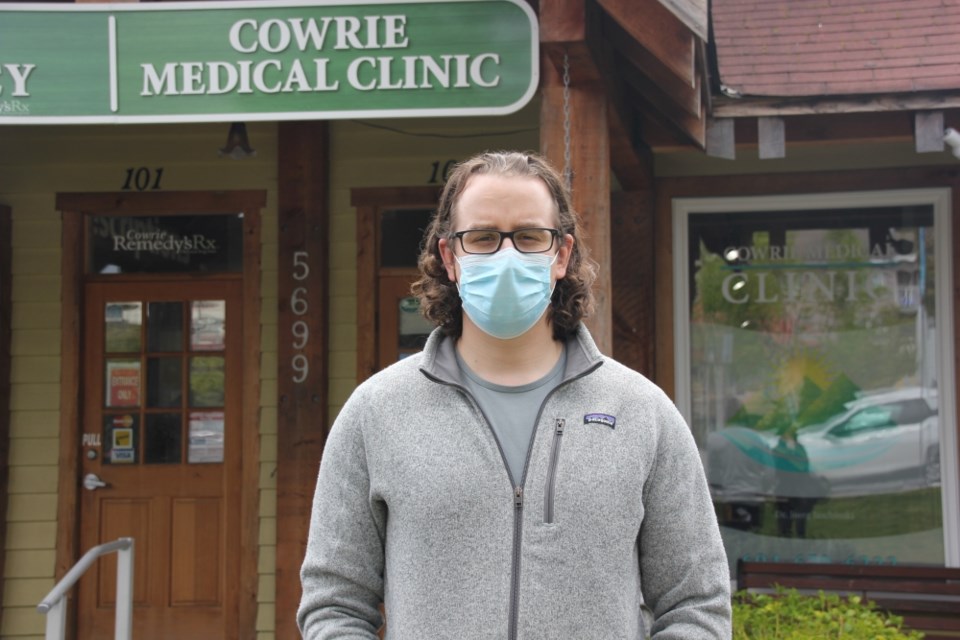Cowrie Medical Clinic is planning a new pilot project: To offer free cancer screenings to people without a family doctor on the Sunshine Coast.
On June 23, Dr. Kevin Koopman told Coast Reporter the program will be similar to Victoria’s CanScreenBC, which offers cancer screening to all B.C. residents to raise awareness and access. He shared the idea with his colleagues at the Cowrie Medical Centre, and the seven physicians agreed it’s something the Sunshine Coast needs too.
“I said, ‘Wouldn't this be a great service to offer on the Sunshine Coast, especially given how with cancer treatment there's such a delay in getting the diagnosis, getting the imaging, seeing the specialist, getting the treatment? Wouldn't it be nice if we could at least somewhat increase the access for patients on the Sunshine Coast who don't have a doctor, who don't even know how to go about getting a cancer screening?”
As far as Koopman knows, the Cowrie Medical Clinic will be the first on the Coast to offer such a program.
The screenings would begin in August or September. Kooper said people can now call the clinic (604-670-6222) to be added to a waitlist. The screenings would take place on weekends, so that the program won’t interfere with the Cowrie Medical Clinic’s regular hours.
The screenings will be for the cancers that have provincial screening programs available, including cervical cancer, breast cancer, colon cancer, prostate cancer, and lung cancer. (Sunshine Coast residents can also screen for cervical cancer at-home by ordering HPV testing kits from BC Cancer.) Koopman said two of the big factors are age and family history of cancer. He suggest people contact the clinic if they think they’re eligible.
“The premise of a screening program is that you catch the cancer early enough that it reduces your chance of dying from the condition itself, and improves quality of life by diagnosing it earlier and treating it earlier,” Koopman said.
Anyone with symptoms, such as rectal bleeding, a long-term cough or a breast mass, should use the clinic’s walk-in option between 10 a.m. and 5 p.m. Mondays through Fridays or seek help at the Sechelt Hospital’s emergency department. The tests can be different for people experiencing systems, while the screening is intended for people who are asymptomatic.
Koopman said hopefully, for most patients, they would just be updating their screening every one or two years. But for anyone who is diagnosed with cancer through the screening, the doctor who performed the screening will take that person on as a patient to help guide them through the next steps. Koopman likens it to being a patient’s quarterback.




